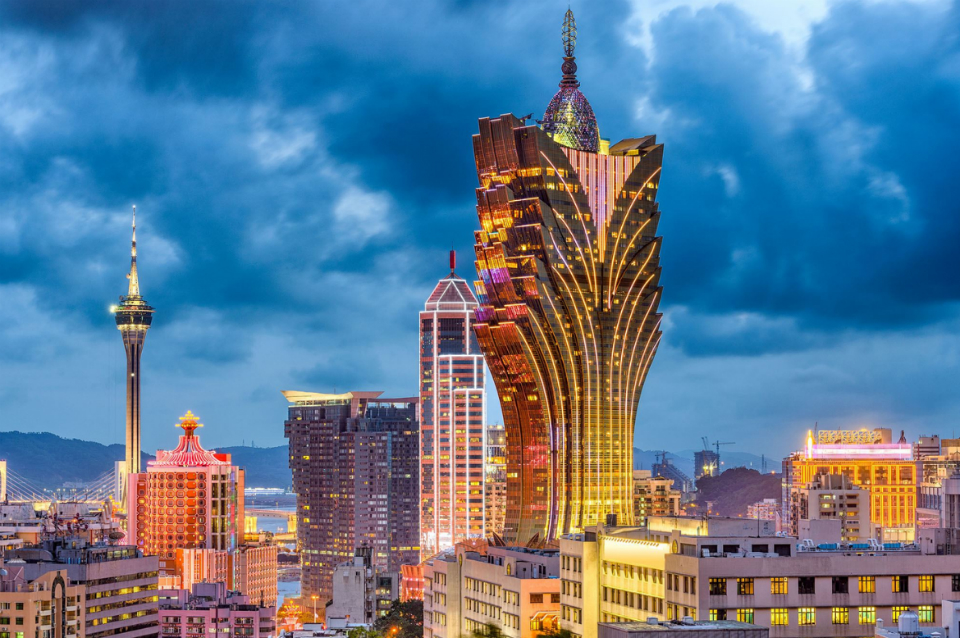 It seems that 2022 will be a year that the gambling industry in Macau is willing to forget, as casinos are on the way to reporting their weakest revenue haul ever after being hit by the strict policies of Covid-19 policies and travel restrictions that have been keeping players away.
It seems that 2022 will be a year that the gambling industry in Macau is willing to forget, as casinos are on the way to reporting their weakest revenue haul ever after being hit by the strict policies of Covid-19 policies and travel restrictions that have been keeping players away.
The beginning of December saw the Gaming Inspection and Coordination Bureau (GICB) report casino operators’ revenue in November suffered a 56% decline in comparison to the results a year earlier, to 3 billion patacas. The result took revenue generated in the period from January to November to a total of 38.7 billion patacas – an amount much smaller than the 270 billion patacas that were generated over the same period in 2019, right before the Covid-19 pandemic outbreak.
According to preliminary estimates provided by market analysts, the November revenue of Macau casino operators would drop 47% in comparison to the one generated in 2021, reaching 3.6 billion patacas. In comparison, the casinos situated in the largest gambling hub generated revenue worth 22.9 billion patacas in November 2019.
Overall Tourist Numbers in Macau Remain Much Lower Than Pre-Pandemic Levels
 At the beginning of the month, it became clear that the tourist numbers in the special administrative region currently remain much lower than the levels from before the Covid-19 pandemic outbreak.
At the beginning of the month, it became clear that the tourist numbers in the special administrative region currently remain much lower than the levels from before the Covid-19 pandemic outbreak.
In October, there were only 580,000 arrivals in Macau in comparison to 2.9 million in the same month only three years ago. The significant reduction in the number of arrivals resulted from China’s persisting anti-Covid-19 measures as part of the Government’s efforts to curb an increase in the number of infections. For the time being, the special administrative region remains off-limits to visitors from most countries but visitors from mainland China are able to travel without quarantine, while visitors from Hong Kong are required to spend a five-day quarantine at a hotel.
According to reports, over 89% of visitor arrivals in Macau in November 2022 originated from mainland China.
As previously reported by CasinoGamesPro, mass Covid-19 testing was carried out in Macau. In October, the local Government shut down a major casino resort, MGM Cotai, in order to tackle a small flareup – a move that affected the tourism sector even more.
The tourists visiting Macau are also spending less time in the special administrative region after the Government of mainland China imposed further restrictions on junket operators in the SAR, the only destination in Greater China which offers legal casino gambling services. The trend representing an increase in the visitation numbers continued in October, despite the restrictions imposed by the Government on various economic sectors. At the time, Macau’s visitation numbers increased by 77% in comparison to 2021.
Macau Casino Revenue Remains Very Much Reliant on Customers from Mainland China
 The gambling revenue in Macau has been suffering a decline since March 2022, when the Omicron variant of the coronavirus infection hit China. Then, in July, the revenue generated by the gambling hub plunged to a record low, with the city facing its most serious Covid-19 outbreak and going into lockdown for a couple of weeks, which eventually left the casinos with hardly any income at the time.
The gambling revenue in Macau has been suffering a decline since March 2022, when the Omicron variant of the coronavirus infection hit China. Then, in July, the revenue generated by the gambling hub plunged to a record low, with the city facing its most serious Covid-19 outbreak and going into lockdown for a couple of weeks, which eventually left the casinos with hardly any income at the time.
The stringent restrictions have made the special administrative region less attractive to overseas visitors but still, the authorities have been making efforts to target visitors from Hong Kong and Southeast Asia.
IGamiX Management & Consulting managing partner Ben Lee explained that the latest lockdowns in Guangdong, combined with the closure of MGM Cotai in October, cut the hopes for a recovery of the sector by the end of 2022. Mr. Lee explained that the initial projections for November, after taking into account the resumption of tour groups and e-visas from mainland China, featured gambling revenues from 3.5 billion to 4 billion patacas. As mentioned above, visitors from mainland China account for approximately 90% of the gross gaming revenue in Macau.
Macau has always depended a lot on tourists from mainland China. Lately, the SAR’s reliance on such visitors grew even more because of the quarantine policy that has been making it an unattractive destination for overseas customers. Some market experts believe that only a meaningful recovery of the industry could change the trend but such a recovery in 2023 remains uncertain. Others, in contrast, remain optimistic.
Despite the ongoing problems that are being faced by the sector, market analysts report there are better prospects for Macau’s casino industry in the longer term. As recently revealed by CasinoGamesPro, all six concessionaires were granted new 10-year operating permits, with the licenses set to take effect on January 1st, 2023.
The Bloomberg Intelligence index of local casino operators rose by 56% last month after the positive effect that the renewed licensing announcement had on the industry.
Is There Light at the End of the Tunnel for the Macau Gaming Sector? JPM Says “Maybe”
 Until recently, the stocks of the gambling sector in the world’s largest gambling hub had been pretty much abandoned by investors, amid the ongoing underperformance of the industry. Despite all this, JP Morgan Securities LLC reported there was still a chance for Macau to turn the tables as we head into 2023.
Until recently, the stocks of the gambling sector in the world’s largest gambling hub had been pretty much abandoned by investors, amid the ongoing underperformance of the industry. Despite all this, JP Morgan Securities LLC reported there was still a chance for Macau to turn the tables as we head into 2023.
According to the investment banking company, the overall lack of investor interest has been mostly due to the very few opportunities people from mainland China were given to travel to Macau as a result of the Chinese Government’s “zero-Covid” policy. Apart from that, JP Morgan analysts believe that investors have been concerned over licensing renewal risk and other terms associated with it, including the chance for mandated uneconomic capital expenditure to be required from anyone who takes part in the public tender for new 10-year casino licenses.
As CasinoGamesPro recently reported, the six existing casino operators had all received a provisional extension of their operating permits for 10 more years. According to some market experts, this could be a result of what they described as “extreme bearish sentiment” in terms of Macau gaming stocks. In addition, after the Local Government made its official announcement of the preferred candidates to operate casino venues in Macau, the stock prices of Hong Kong-listed companies that are directly associated with casino operations in the special administrative region rose.
After the announcement of the new casino operating permits, the brokerage shared that even though the analysts were not experts on China policy, they took into consideration the situation and evaluated the mainland Government’s moves in practical terms to make a prediction. The authors of JP Morgan Securities’ report explained they subscribed to the idea of following what China did, including the most recent steps of the Government to relax the restrictions, and compare that with what China said.
According to JP Morgan Securities’ experts, the demand for Macau stock remained strong whenever the world’s largest gambling hub was accessible. They also explained that, recently, the chances for the market to enjoy an extended run of customer demand had been somehow limited.
JP Morgan shared that while the market-wide gross gaming revenues (GGR) in Macau only reached 10% to 15% of the GGR levels from before the pandemic, they were still higher than the 5% to 10% GGR increase only a couple of months ago. According to them, this trend indicated a gradual but stable improvement. Analysts believe there is room for further recovery, especially within mass gross gaming revenue in 2023, when it could reach approximately 60% of the 2019 levels. The improvement could continue to 2024 as well, with JP Morgan experts predicting GGR could reach 90% of its pre-pandemic levels at the time.